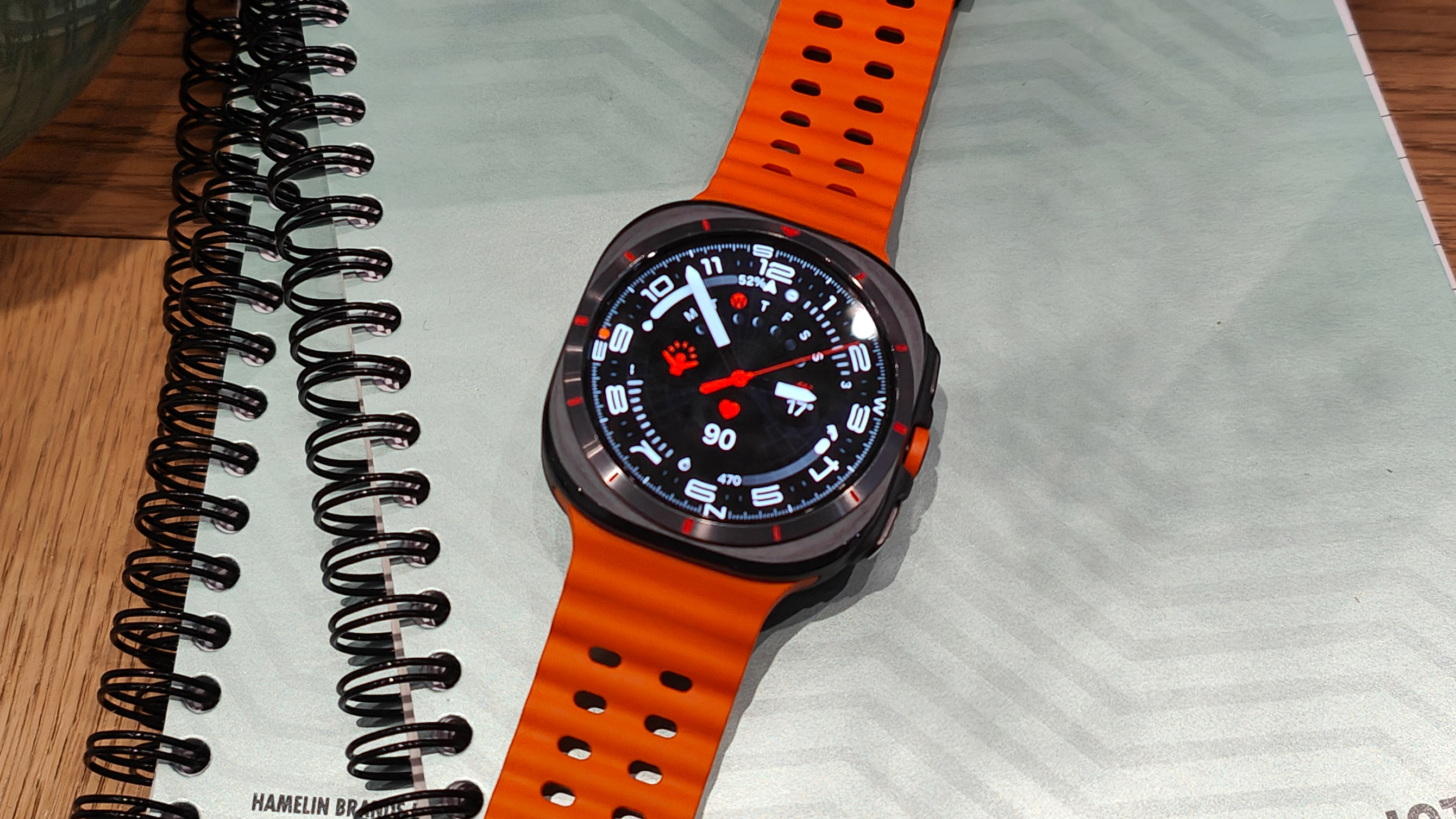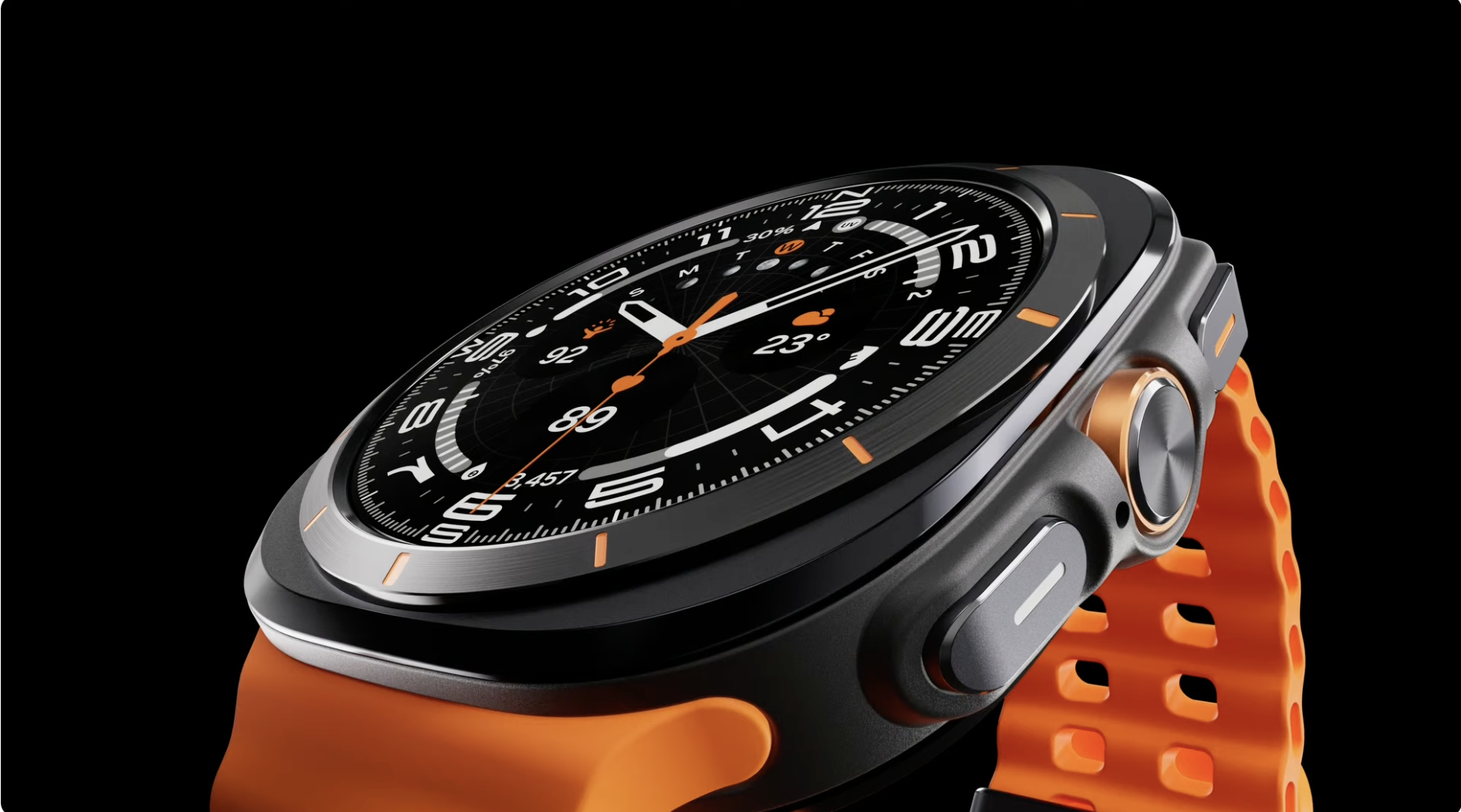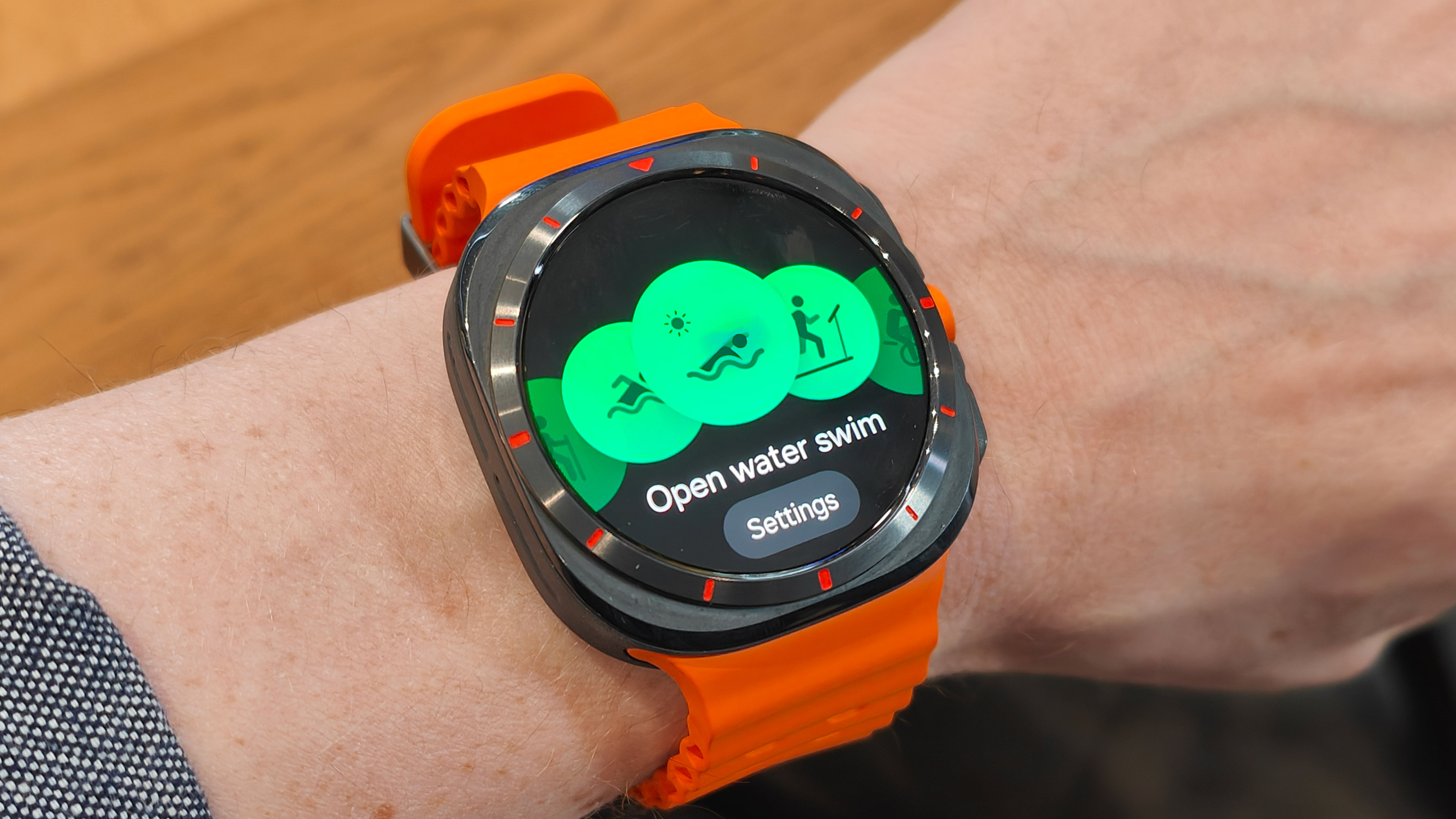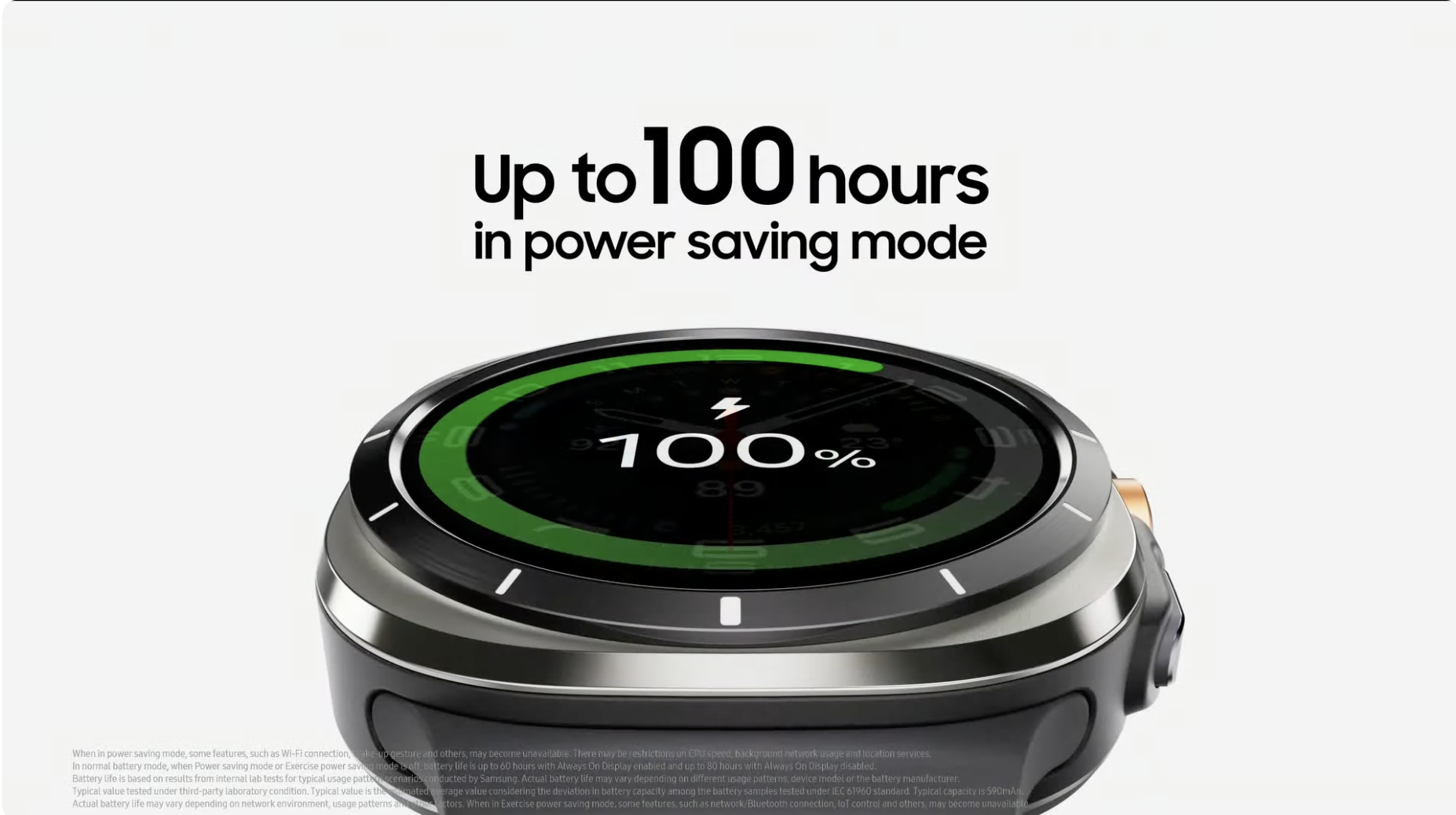Samsung Galaxy Watch Ultra: The rugged new watch's price, release date, new features and more
Samsung Galaxy Watch Ultra has landed

Launched at the July 2024 Samsung Galaxy Unpacked showcase, the Samsung Galaxy Watch Ultra is a new, premium-level smartwatch from Samsung, and it's positioned as a direct competitor to the high-end wearables from Apple and Garmin.
Here we're going to bring you all the information you need about the Samsung Galaxy Watch Ultra, from the starting price in your part of the world, to the features and functions you can take advantage of once it's strapped around one of your wrists.
For our initial thoughts on whether this is one of the best smartwatches on the market, read our hands-on Samsung Galaxy Watch Ultra review, which we'll follow up with a full review once we've spent some more time with the device.
Samsung Galaxy Watch Ultra: Cut to the chase
- What is it? A premium Samsung smartwatch.
- When is it on sale? July 10 for pre-orders, released July 24, 2024.
- How much will it cost? $649 / £599 / AU$1,299.
Samsung Galaxy Watch Ultra: price and release date

You can buy the Samsung Galaxy Watch Ultra from July 24, 2024, and there's just one model and one price point: $649 / £599 / AU$1,299.
For comparison, our Apple Watch Ultra 2 review will tell you that that smartwatch will set you back $799 / £799 / AU$1,399. Over on our Garmin Fenix 7 review, meanwhile, you'll see a starting price of $699.99 / £599.99 / AU$1,049.
Samsung may well have taken those prices into consideration when launching the Galaxy Watch Ultra: it's significantly more expensive than the standard Galaxy Watch 7, but a little less expensive than these high-end watches from Apple and Garmin.
Samsung Galaxy Watch Ultra: Design and screen

The Samsung Galaxy Watch Ultra comes in a single 47mm size, with the same screen as the Galaxy Watch 7: specifically, a 1.5-inch Super AMOLED display, running at a resolution of 480 x 480 pixels, made from super-tough sapphire crystal.
Sign up for breaking news, reviews, opinion, top tech deals, and more.
Overall, the device is chunkier than the Galaxy Watch 7 though, with a scratch-proof titanium casing molded into a rather unusual 'squircle' shape, and rugged silicone bands that are partly made from recycled plastics. The casing measures 47.4 x 47.4 x 12.1mm, and weighs in at 60.5 grams.
You've got three different color variations to choose from in terms of the casing: Titanium Silver, Titanium Gray, and Titanium White. These can then be paired with your choice of strap, and as usual there are likely to be a variety of third-party bands available too.
The Galaxy Watch Ultra offers IP68 water and dust protection, as well as MIL-STD-810H military grade durability – essentially, the ability to survive in extreme temperatures of -20°C to 50°C. Those two specs match the Galaxy Watch 7, but the Ultra beats the standard model in water resistance: it can survive for up to 10 minutes at a depth of 100 meters (compared to 50 meters for the Galaxy Watch 7).
You can operate the watch via the touchscreen or via the two physical buttons we're used to on the best Samsung smartwatches. On this Ultra model, there's an extra Quick button, which can be customized in a variety of ways (to launch workouts, for instance).
Samsung Galaxy Watch Ultra: Sensors and Features

Inside the Galaxy Watch Ultra we've got Samsung's new Exynos W1000 processor and 2GB of RAM, as well as 32GB of on-board storage. There's Wi-Fi and Bluetooth 5.3 connectivity here, as well as LTE.
Those specs all match up exactly with the Galaxy Watch 7's screen, but the Ultra's larger size allows for a bigger capacity battery: 590mAh compared to 425mAh on the 44mm Galaxy Watch 7. Samsung says it can last up to 100 hours in low-power mode, or a couple of days with normal operation.
Also, we've got a brand new BioActive sensor from Samsung inside the watch, which promises greater accuracy when measuring key metrics such as heart rate, sleep quality, blood pressure, blood oxygen levels, and stress. The sensor also enables what's known as an advanced glycation end products (AGEs) index, which assesses various biomarkers to help predict the risk of conditions such as diabetes and stroke.
The dual-frequency precision GPS on board the Galaxy Watch Ultra is notable too, which (again, like the Apple Watch Ultra) should mean improved accuracy when you're out on those long hikes and runs – these high-end wearables are aimed at users who spend a lot of time outdoors, and are serious about their training.
In terms of software, there's One UI Watch 6 here, which is Samsung's take on Wear OS 5. You can expect tight integration with any Android phone, but especially Samsung Galaxy phones and the Samsung Health app.
You might also like

Dave is a freelance tech journalist who has been writing about gadgets, apps and the web for more than two decades. Based out of Stockport, England, on TechRadar you'll find him covering news, features and reviews, particularly for phones, tablets and wearables. Working to ensure our breaking news coverage is the best in the business over weekends, David also has bylines at Gizmodo, T3, PopSci and a few other places besides, as well as being many years editing the likes of PC Explorer and The Hardware Handbook.
- Axel MetzPhones Editor